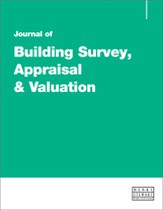Envisaging an energy-efficient Europe: Implications for the real estate sector following the adoption of the Energy Efficiency Directive
Abstract
As many readers will be aware there is an increasing amount of law imposing requirements in respect of the energy performance and efficiency of buildings both at domestic and European Union level. This paper considers some of the European Union's stated commitments prior to considering the content and the implications arising out of one of the European Union's most recent measures, Directive 2012/27/EU of the European Parliament and of the Council on energy efficiency, which is known as the Energy Efficiency Directive (hereafter, the Directive).
The full article is available to subscribers to the journal.
Citation
Quaid, Olivia, Sheridan, Paul and Heighton, Mark (2013, April 1). Envisaging an energy-efficient Europe: Implications for the real estate sector following the adoption of the Energy Efficiency Directive. In the Journal of Building Survey, Appraisal & Valuation, Volume 2, Issue 1. https://doi.org/10.69554/DQBA5083.Publications LLP
